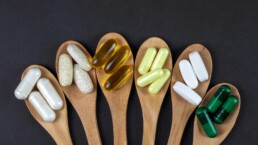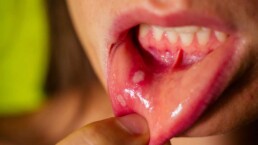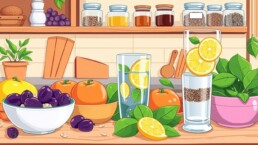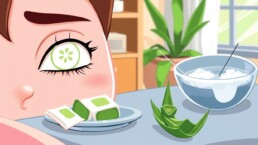Kidney stones are very common and they hurt a lot. They are made of minerals and salts in your kidneys. If you don’t treat them, they can cause major problems. It’s important to know the early signs and symptoms. This way, you can see a doctor quickly and stay healthy.
Table of Contents
ToggleAbout 1 in 10 people get kidney stones. In the United States, there are 600,000 new cases every year. Men are more likely to get them than women. But, both men and women can have kidney stones at some point in their lives.
Kidney stones can form anywhere in your urinary tract. This includes the kidneys to the bladder. There’s not always one clear reason why they happen. But, not drinking enough water, unhealthy eating, being overweight, certain gut issues, and some illnesses make you more likely to get them. Learning the early signs and getting diagnosed quickly is key. It helps you to take action early and avoid problems.
What are Kidney Stones?
Kidney stones, or renal calculi, are hard deposits in the kidneys. They are made of minerals and salts. These objects form in the urinary system, which removes waste through urine.
Definition and Composition
Kidney stones are small, solid crystals. They develop when minerals in the urine become too concentrated. Calcium, oxalate, and uric acid are common materials in these stones.
Knowing the type of stone is important. It helps decide the best ways to treat and prevent them.
Types of Kidney Stones
Several types of kidney stones exist:
- Calcium stones – The most common, from calcium oxalate or phosphate.
- Struvite stones – Caused by certain infections.
- Uric acid stones – From too much uric acid in urine.
- Cystine stones – Due to a genetic disorder, causing cystine buildup.
Identifying the stone type helps in making a treatment and prevention plan.
Common Kidney Stones Symptoms
Kidney stones bring symptoms that can make you feel very bad every day. A main sign is a sudden, strong pain in your side, back, or lower belly. This hurt might spread to your tummy and area between your legs as the stony thing moves inside you.
Severe Pain
The pain from kidney stones is really bad and can keep changing. You might feel very sharp pain in your back, tummy, or groin. Sometimes, this pain goes down to your private area or leg. It’s so bad that finding a comfy spot is hard.
Nausea and Vomiting
Feeling sick and throwing up happen with the bad pain from kidney stones too. The stone moving can make the areas around it hurt, leading to these stomach problems. This mix of bad pain and feeling sick can stop you from doing everyday things.

If these signs sound like what you’re going through, get help from a doctor quickly. Kidney stones can hurt a lot and, if not treated, might cause big problems. A doctor can figure out what’s wrong and give you the right care. This can help with the pain and stop more stones from forming later.
kidney stones symptoms
Kidney stones can make you feel uncomfortable in many ways. They might lead to blood in the pee or make you pee a lot. If you notice these signs, it could mean you have a kidney stone.
Blood in Urine
Finding blood in your pee is a sign that you might have kidney stones. It can make your urine pink, red, or brown. When a stone moves, it can hurt the inside of your pee tubes, causing blood to show up.
Frequent Urination
Kidney stones might make you need to pee more often. This happens because the stone irritates your pee tubes. It can make your bladder or the tube that carries urine very small. Then, you might feel like peeing a lot, even if you don’t pee much each time.
If you see blood in your urine or start peeing more, see a doctor. These signs could mean you have a kidney stone that needs to be looked at and treated.
Causes of Kidney Stones
Kidney stones are common and can be very painful. They happen when minerals and salts get hard in the kidneys. This hardening can be due to several reasons.
Dehydration
Not drinking enough water is a big cause of kidney stones. When the body lacks fluids, urine gets too concentrated. This allows the minerals to come together and form stones. So, it’s very important to drink enough water to help avoid this problem.
Diet and Lifestyle Factors
Our diet and how we live are also big parts of this issue. Eating lots of protein, salt, or sugar can be bad. So can being overweight or having certain tummy problems. These things can make the minerals in our urine gather and make stones.
Here are some specific things in our diet and how we live that can cause kidney stones:
- Too much animal protein, like meat, eggs, and seafood
- A diet with a lot of salt but not much calcium
- Lots of high-fructose corn syrup or other sugars
- Being overweight or obese
- Some stomach issues, like inflammatory bowel disease or chronic diarrhea
Understanding what can lead to kidney stones is crucial. It helps us know what to avoid to keep our kidneys healthy.
Risk Factors for Developing Kidney Stones
Kidney stones hurt and come back often. Knowing the risks can help you avoid them. Dehydration and some foods can make kidney stones more likely. But, there are other things to think about too.
If someone in your family has had kidney stones, you might get them too. Other health problems like renal tubular acidosis can also lead to kidney stones.
Taking some medicines or vitamins can up your risk too. For example, diuretics, antacids, and too much vitamin D might not be good for you.
More things that can make kidney stones more likely are:
- Men are more likely to have kidney stones than women.
- White people not of Hispanic descent are at a higher risk.
- Being overweight makes kidney stones more likely.
- Diabetes can also raise your chances of getting kidney stones.
- Bowel diseases like Crohn’s can make it more likely.
Knowing these risks is important. Be sure to drink enough water, eat a good diet, and treat any health problems you have. This can help you avoid kidney stones.
Diagnosing Kidney Stones
It’s key to find kidney stones to treat them right. Doctors might use tests that look inside you and check your urine. These tests find out where stones are and what they’re made of.
Imaging Tests
Imaging tests are very important to spot kidney stones. Doctors use them to see the stones and figure out how big they are and where they are. The tests they use are:
- Computed Tomography (CT) Scans: A high-speed or dual-energy CT scan can detect even small kidney stones with a high degree of accuracy.
- Ultrasound: A non-invasive and quick method that can be used to identify the presence of kidney stones.
- X-rays: Traditional X-ray imaging can sometimes be used to detect larger kidney stones, though it is less effective for smaller stones.
Urine Analysis
Doctors also do a urine test to diagnose kidney stones. This test tells them what the stone is made of, helping with treatment. They look for too much of some stuff in your urine, like:
- Calcium
- Oxalate
- Uric acid
If you collect all your pee for a day, they can learn even more. This can show if your body has too much of the stuff that makes stones.
By using both imaging tests and a urine check, doctors can know for sure if you have kidney stones. Then, they can plan what to do to help you.
Treatment Options for Kidney Stones
Having kidney stones can be very painful and frustrating. But, there are many ways to treat them. The best treatment depends on the stone’s size, where it is, and what it’s made of. Your health and medical past matter too.
Medication
Some people can pass kidney stones on their own, with medicine. Your doctor might give you pain pills, alpha blockers, or other drugs to help the pain and move the stone. These meds make it easier for the stone to leave your body.
Surgical Interventions
If a stone is too big to pass naturally, or it’s causing problems, you might need surgery. Doctors have a few ways to treat it, including:
- Shock wave lithotripsy (SWL): A simple surgery that breaks the stone into tiny pieces. It’s done outside the hospital, with a machine that uses sound waves.
- Cystoscopy and ureteroscopy: These are done in the hospital. Doctors use tiny tools with cameras to find and take the stone out. You’ll be asleep during it.
- Percutaneous nephrolithotomy: Doctors make a small cut in your back to remove the stone, often using a special tool. This is needed for big stones and you’ll need to stay in the hospital while you recover. You’re also asleep during this surgery.
Which surgery you need depends on the stone and your health. Your doctor will help choose the best option for you.
It’s key to follow what your doctor tells you, no matter the treatment. And work on preventing more stones. This means drinking lots of water, eating right, and maybe taking some medicines to stop new stones.
Prevention of Kidney Stones
Preventing kidney stones is super important. Up to 12 percent of Americans deal with this issue. Luckily, there are easy ways to lower your risk. Drinking lots of water and changing what you eat can make a big difference.
Hydration
Drinking plenty of water is key to avoiding kidney stones. When you drink enough, it helps move out the stuff that forms stones. Try to drink 2-3 liters of water every day. If you’re in a hot place or exercise a lot, drink even more.
Dietary Changes
Changing what you eat can cut your kidney stone risk too. Eat less salt, animal protein, and certain veggies. But, eat more foods rich in calcium. A dietitian can give you a plan that’s just right for you.
- Limit how much salt you eat to under 2,300 mg each day.
- Eat less meat, eggs, and seafood.
- Stay away from foods high in oxalate, like spinach, beets, and soy.
- Eat more foods with calcium, like dairy, greens, and beans.
By drinking lots of water and adjusting what you eat, you can avoid kidney stones. Always talk to a doctor or dietitian to get advice that fits you best.

Complications of Untreated Kidney Stones
Kidney stones are a big health problem if not treated. 1 to 2% of the German folks get them. Also, about 10% of Americans will suffer from them. Men face a bigger risk than women. These stones can come at any age, even to children. Yet, it’s more common from 40 to 60 years old.
Not dealing with kidney stones can cause big issues, such as:
- Urinary tract infections (UTIs): They can stop urine flow, making a place where bacteria love to grow. This leads to painful and dangerous UTIs.
- Kidney damage: A stone blocking the urine’s way can hurt your kidneys. It might even cause kidney disease or failure.
- Blockage of the urinary tract: Big stones can fully stop the pee from flowing. This is a medical emergency. You could face organ damage or even death without quick treatment.
Getting treatment fast stops these complications of kidney stones. Small stones (less than 5 mm) can sometimes go away naturally. But, bigger stones need a doctor’s help to prevent a health crisis.
If you find out you have kidney stones, work with your doctor on a plan. Don’t ignore them because they can be life threatening. Fast medical care is key for your health and happiness.
When to Seek Medical Attention
Kidney stones come in different sizes, from small pebbles to large walnuts. Symptoms can vary a lot. Some feel mild pain, while others have intense pain. It’s important to know when to see a doctor about kidney stones. This helps get the right treatment quickly.
If you have certain symptoms, get medical help right away. These include:
- Severe, persistent pain not helped by over-the-counter drugs
- Blood in urine, making it look red, pink, or brown
- Trouble urinating or feeling a burn when you do
- Fever and chills, which might mean a kidney infection
These signs could be a medical emergency. Quick checking and treatment are needed. Not acting fast can cause serious problems. These might include urine blockage, kidney harm, or sepsis, which is dangerous.
If you see these worrisome signs, call your doctor or go to the ER now. Fast diagnosis and care are key to managing kidney stones well. It can also help avoid more serious consequences.
Getting medical help for kidney stones is very important. It ensures you get the right care to treat them and stop future issues. Knowing when to act helps you protect your health and deal with kidney stones well.
Kidney Stones in Children
Kidney stones are not just for grown-ups. Kids can get them too. This issue, known as pediatric kidney stones, needs special care. Health experts must pay close attention. Kidney stones can make a child feel sharp pain in their back, side, tummy, or groin. Blood in the pee might also show up. But, a really tiny stone that passes easily may not cause any pain.
Doctors use many ways to check for kidney stones in kids. They look at the symptoms, health past, do physical checks, and run tests. Tests like CT scans or ultrasounds are common. Doctors also check the pee’s makeup to see what the stones are made of. Knowing what causes stones and the risks is key to stop them.
Helping the stone pass by drinking lots of fluids is a big help. Kids might get help with the pain and swelling from medicines. Sometimes, special medical steps are needed to get rid of, or break up, bigger stones. These steps can include shock wave lithotripsy or ureteroscopy.
To keep kids from getting kidney stones, making sure they drink enough water is important. Changing the diet to cut back on certain foods can help. In some cases, using medicine to stop stones from forming is used. Working together in research helps make treatments better. It also helps make ways to stop stones before they happen.
By focusing on how kidney stones affect children, health workers can do a better job. They help kids get and stay healthy.
Myths and Misconceptions about Kidney Stones
Many myths and wrong ideas about kidney stones exist. Knowing the real facts helps to prevent and manage them. It’s vital to learn what is true and what is not to stay healthy.
Some think if you have “calcium” stones, avoid dairy. Yet, dairy can stop stones from forming by catching oxalate. This shows, dairy can be good for you. Eating a balanced diet, including enough calcium, is key to avoiding stones.
Lots think only men get kidney stones. It’s true, men used to get them more often. But, new studies say women are also at risk. So, anyone can get kidney stones, not just men.
- Myth: Calcium-rich foods should be avoided if you have kidney stones.
- Myth: Kidney stones are a problem only for men.
- Myth: Smaller kidney stones are less painful than larger ones.
- Myth: Kidney stones can be dissolved with medications.
- Myth: Passing a kidney stone is a one-time event.
Always get the right info about kidney stones from doctors. Believing myths can slow down recovery or hurt chances of staying healthy.
Learning the real facts about kidney stones is very helpful. It lets you take steps to lower your chances of getting stones. Talk to your doctor for a plan that fits you and keeps you healthy.
Coping with Kidney Stone Pain
Kidney stones are very painful and can disrupt your life. But, you can do things to reduce the pain. Working with your healthcare team helps create a plan to manage kidney stone pain.
Medication for Pain Relief
First, your doctor might give you pain medicine. They could say to use ibuprofen or stronger medicines. Taking the medicine as the doctor says is very important.
Applying Heat for Comfort
Putting heat on the sore spot can make you feel better. A heating pad or warm bath can ease your pain. This is an easy way to deal with the pain.
Staying Hydrated
Drinking lots of water is key to lessening kidney stone pain. Try to drink two liters of water daily. This helps flush out stones and ease your pain.
Exploring Natural Remedies
Some people think lemon juice or apple cider vinegar with water can help. Natural remedies might work, but check with your doctor first. They can be a helpful addition to your pain management.
Practicing Relaxation Techniques
Deep breathing and meditation can lower your stress and pain. These activities can make you feel better. Finding ways to relax can make this time easier.
It’s important to see a doctor about kidney stone pain. They will give you the right advice and treatments. Don’t wait to see them if your pain is bad or won’t go away.
Conclusion
It’s key to spot the early signs of kidney stones. Then, get help fast. It’s important to know what causes them and how to prevent them. In India, people can do a lot to lower their kidney stone risk. And, keep their urine health on track.
About 10-12% of India’s people have kidney stones. Calcium stones are the most common kind. So, getting the right treatment is very important. Luckily, treatments have gotten better. Now, there are more ways to help people, like newer surgeries.
Knowing the signs of kidney stones is a must. Look out for bad pain, nausea, blood in the pee, and peeing a lot. Tests can spot if you have them. This helps doctors figure out the best care. Also, healthy living and drinking lots of water can help. Making diet changes is good too. This cuts down the chance of getting kidney stones or having them again.
FAQ
What are kidney stones?
Kidney stones are hard things made of minerals and salts. They form inside your kidneys. They can move from your kidney to your bladder, causing problems.
What are the different types of kidney stones?
A: There are several types of kidney stones. The main ones are:
- Calcium stones
- Struvite stones
- Uric acid stones
- Cystine stones
What are the common symptoms of kidney stones?
The usual signs of kidney stones are strong pain in your back or side. You might feel sick, see blood in your pee, and always feel like you need to go.
What causes kidney stones?
Lots of things can cause kidney stones. These include not drinking enough, eating certain foods, being too heavy, and some diseases.
What are the risk factors for developing kidney stones?
If someone in your family has had kidney stones, or if you drink too little water, eat the wrong foods, are overweight, or have certain health problems, your chances of getting them go up.
How are kidney stones diagnosed?
Doctors use special tests to find and understand kidney stones. Tests may include CT scans, ultrasounds, X-rays, and checking your urine.
How are kidney stones treated?
Sometimes, kidney stones just need ouch medicine and time to go away. But big stones might need special treatments or surgeries.
How can kidney stones be prevented?
To stop kidney stones, drink lots of water, eat the right things, and take care of any health issues you have.
What are the complications of untreated kidney stones?
If you don’t treat your kidney stones, bad things can happen. This includes infections, harm to your kidneys, or a blocked tunnel where your pee comes from. These can be very dangerous.
When should you seek medical attention for kidney stones?
If the pain is really bad, you see blood in your urine, you can’t pee well, or you have a fever with the pain, you need to see a doctor right away.
Can kidney stones affect children?
Yes, kids can get kidney stones too. They need special care from doctors who treat children.
What are some common myths and misconceptions about kidney stones?
Some people think that if you have a “calcium” stone, you have to stop eating dairy. But that’s not true. Always listen to what your doctor says.
How can you cope with the pain of kidney stones?
If you have kidney stone pain, take the medicine your doctor gives you, use a heating pad, drink water, and try to relax. Make sure to talk to your doctor about how you’re feeling.
Source Links

This article is medically reviewed by Dr. Chandril Chugh, Board-Certified Neurologist, providing expert insights and reliable health information.
Dr. Chandril Chugh is a U.S.-trained neurologist with over a decade of experience. Known for his compassionate care, he specializes in treating neurological conditions such as migraines, epilepsy, and Parkinson’s disease. Dr. Chugh is highly regarded for his patient-centered approach and dedication to providing personalized care.








